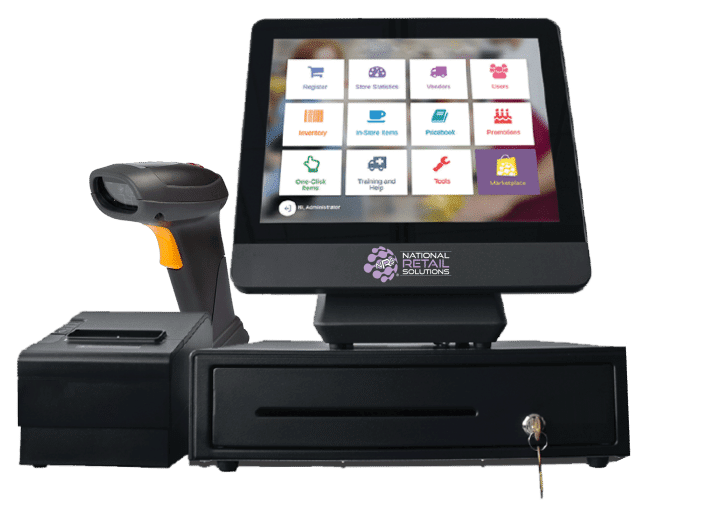Excitement About Point Of Sale
Excitement About Point Of Sale
Blog Article
Clover POS : The Point-Of-Sale System Simplifies Checkout Processes Effectively
Unpacking the Power Behind Point of Sale Systems
Have you ever paused to consider what takes place the moment you swipe your card or tap your phone at a checkout? That split 2nd activates a waterfall of processes, managed by advanced Point of Sale Systems. Far from being simple cash registers, these systems function as the digital heartbeat of retail operations, weaving together sales data, inventory, and consumer interaction.
Picture a dynamic café where the barista juggles orders, payments, and loyalty benefits all at as soon as. The POS system isn't simply a tool-- it's the unseen partner ensuring every cappuccino is represented, every discount applied correctly, and every customer leaves satisfied. Point of Sale. It's the difference in between turmoil and seamless service
Core Functions That Drive Performance
- Sales Deal Management: Tracks each purchase with precision, making sure accuracy in billing and invoices.
- Stock Control: Automatically updates stock levels, notifying when it's time to reorder.
- Customer Information Collection: Gathers insights for personalized marketing and commitment programs.
- Employee Tracking: Schedules shifts and records hours worked.
Why Does This Matter?
Consider the last time you waited in a long checkout line. Discouraging? A well-implemented POS system slashes wait times by streamlining payment processes, decreasing human error, and syncing sales with backend operations in real-time. It resembles having a conductor directing every note in the symphony of retail.
| Function | Benefit | Impact |
|---|---|---|
| Real-Time Analytics | Instantaneous sales reporting | Better choice making |
| Mobile Compatibility | Checkout anywhere | Boosted customer experience |
| Integrated Payments | Several payment options | Increased sales opportunities |
Does not it make you question how organizations ever managed without these check here systems? In a world where every 2nd counts, the POS is no longer just a benefit-- it's a necessity.
Translating the Celestial Puzzle
When peering into the night sky, have you ever wondered how ancient mariners pinpointed their place without modern-day innovation? Positional astronomy is the art and science behind that celestial navigation. But why does understanding the accurate position of stars and worlds matter? Due to the fact that even a minute miscalculation can send you miles off course, especially when depending on the stars as your compass.
The Subtle Intricacies of Coordinate Systems
One may think the sky is a basic canvas, but it's a vibrant sphere dotted with moving targets. The equatorial coordinate system. Clover POS-- ideal ascension and declination-- mimics Earth's own geography, but with a twist. The Earth's axis wobbles, a phenomenon called precession, which discreetly shifts star positions over years. This demands consistent recalibration. Have you ever discovered how Polaris doesn't constantly sit exactly at the North Celestial Pole? That's precession at work
Tips from the Observatory
- Use a high-precision chronometer to measure sidereal time accurately; even seconds matter.
- Calibrate your instruments regularly to account for climatic refraction, especially near the horizon.
- Cross-check star catalogs-- different dates can yield differing collaborates.
- Employ software application that consider nutation and aberration for contemporary accuracy.
Remarkable Anecdote
Consider the tale of a 16th-century navigator who, using simple tools and naked-eye observations, computed his ship's position with surprising accuracy. His secret? Mastery of celestial mechanics and a deep understanding that the stars, though relatively fixed, are part of a cosmic dance.
Accuracy Needs Persistence
Trying to pinpoint a star without thinking about climatic distortion resembles attempting to check out a book through a frosted window. Even the finest telescopes can be tricked by the atmosphere's fickle layers. Perseverance, several observations, and averaging results typically reveal the real positional information. Isn't it remarkable how the sky's evident stillness masks such intricate shifts?

Deciphering the Essence of Favorable Operator-Valued Steps
Think of trying to capture a shadow's real shape in a world where light bends unexpectedly. Favorable Operator-Valued Measures (POVMs) perform a comparable task in quantum mechanics-- measuring states where classical instinct stops working. Unlike the cool sharpness of projective measurements, POVMs allow a richer tapestry of results, weaving probabilities from operators that aren't always orthogonal. Why choose the mundane when you can paint with the complete palette of quantum possibilities?
Quantum Measurement Beyond Traditional Boundaries
Conventional measurements feel stiff, however POVMs provide versatility. In practice, they emerge from coupling a system with an ancilla, then performing projective measurements on the combined system. This technique extends the horizon of what can be observed. Ever questioned how to optimize details extraction without troubling delicate quantum states? POVMs are the secret.
- Non-orthogonality: Unlike projectors, POVM components overlap, enabling nuanced detection techniques.
- Efficiency: The amount of all POVM aspects equals the identity operator, ensuring total probability.
- Physical Realizability: Any POVM can be carried out by means of Neumark's dilation theorem, connecting abstract math to laboratory experiments.
Specialist Tips for Browsing POVM Implementation
Handling POVMs in practice isn't trivial. Quantum sound and decoherence sneakily distort your perfect operators. To fight this:
- Style POVMs tailored to your speculative setup-- modification beats one-size-fits-all whenever.
- Usage convex optimization algorithms to find the ideal POVM that maximizes info gain for your quantum state discrimination task.
- Keep in mind, the subtle interaction in between operator positivity and measurement completeness governs the trade-off between precision and disruption.
Unseen Complexities in POVM Applications
What does it imply when a POVM component is positive however not a projector? This subtlety frequently astonishes newcomers however reveals a profound fact: quantum measurements do not need to be sharp to be useful. In cryptographic protocols, for example, using POVMs rather of projective measurements can boost security by drawing out information more carefully, leaving less traceable disruption.
| Feature | Projective Measurement | POVM |
|---|---|---|
| Operator Type | Orthogonal Projectors | Positive Semidefinite Operators |
| Measurement Results | Fixed, sharp | Flexible, probabilistic |
| Implementation | Direct on system | Needs supplementary systems |
| Info Extraction | Often restricted | Optimizable and richer |
Comprehending the Intricacies of Proof of Stake
Picture a world where blockchain validators do not race to solve puzzles however instead stake their possessions, signaling trust and commitment. This is the essence of the Evidence of Stake (PoS) mechanism. Yet, underneath its sophisticated surface lies a complex dance of incentives and security procedures. Why does staking more tokens increase your chance to verify the next block? Due to the fact that it aligns financial rewards, making attempts to defraud the network prohibitively costly.
The Subtle Threats of Stake Centralization
One might ask: could a handful of stakeholders subdue a network? The concentration of staked tokens in few hands may alter the decentralization ideal, resulting in oligarchic control over block development. This isn't simply theoretical; it's a real tension in PoS systems. Efficient networks neutralize this by carrying out mechanisms such as:
- Slashing conditions that penalize destructive stars by seizing staked tokens
- Randomized validator choice to avoid predictability
- Delegated staking designs enabling token holders to delegate others without giving up ownership
Specialist Tip: Timing Your Stake
Skilled validators understand that timing can be everything. Joining the staking pool too early or late can affect benefits significantly. Network epochs define windows where staking and validation take location-- missing these could suggest forfeiting made rewards. Constantly synchronize your staking activity with the network's date schedule to optimize yield.
Energy Efficiency and Security: A Delicate Balance

| Element | Evidence of Stake | Evidence of Work |
|---|---|---|
| Energy Usage | Very little, sustainable | High, resource-intensive |
| Attack Cost | Stake loss, economic disincentive | Costly hardware and electricity |
| Block Finality | Faster due to economic locks | Slower due to probabilistic verification |
Rethinking Security Assumptions
One often neglected aspect is the "nothing at stake" predicament. Validators might be lured to sign several completing chains, considered that it costs them nothing straight-- unlike Proof of Work where energy expenditure hinders this. Advanced PoS systems fix this with penalties and checkpointing, guaranteeing validators stake their reputation as much as their tokens. Have you thought about how this impacts your rely on a network?
Point of Sale Solutions in North Carolina
North Carolina is a lively state understood for its diverse economy and abundant cultural heritage. With a population surpassing 10 million, it boasts thriving city centers such as Charlotte and Raleigh, which are hubs for financing, technology, and education. Visitors and homeowners delight in destinations like the Blue Ridge Mountains, historical websites in Asheville, and the gorgeous Atlantic coastline. The state also has a strong entrepreneurial spirit, making it an ideal environment for businesses to adopt effective point of sale systems to simplify operations and boost consumer experiences.
For skilled recommendations and a free assessment on point of sale options, reach out to Brilliant POS. They provide educated assistance tailored to your specific company needs.
Report this page